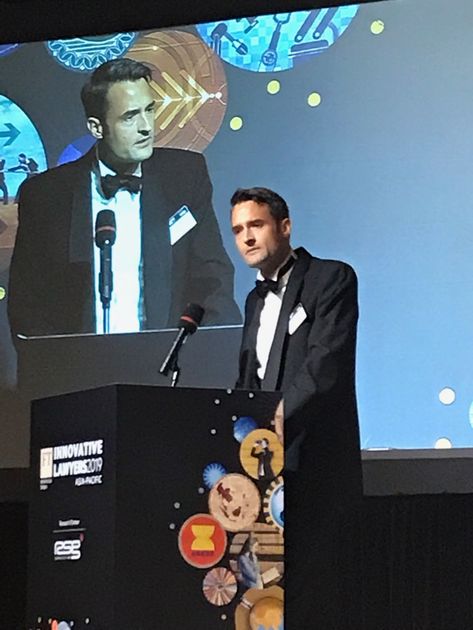The Pursuit of Happiness: Promise of the New Era
November 12, 2019
I was humbled this week to share a few words with some of the most gifted professionals across the legal sector in Asia Pacific, representing Elevate as global lead partner to the Financial Times Innovative Lawyers Awards. For some time I had planned to touch on diversity, a vital topic that we must continue to address. However, I was assailed on the flight from Sydney by a conscience that persuaded me to talk about another of the wicked challenges facing our industry. With reluctance I started scribbling what came to mind, hoping to scrap it for plan A. But a persistent conscience is a maddening thing. I was surprised and encouraged by the number of people who opened up to me in the few days since, sharing their own difficult stories. I flew straight from Hong Kong to Phoenix where Elevate’s Global Leadership Team, select customers, and investors are gathered to consider such weighty topics as our purpose – the “why” that gives meaning to our efforts. One of the core principles we are seeking to foster and live by is that of “radical transparency.” So, in that spirit, and at the encouragement of others, I’m sharing this short transcript of my speech at the ceremony. I hope it encourages you to share your stories as we help each other towards greater harmony in our lives.
Yesterday, Japan entered a new era: the Reiwa era of “beautiful harmony.” As I was reflecting on the focus of this year’s awards, being people and the human components of innovation, that transition felt particularly apposite. I wanted to focus briefly, if I may, on a topic that is certainly close to my heart, too close at times, and I know will be close to the hearts of many in this room. And that is one of the wicked challenges we have in the legal industry around mental health. I have, personally, dragged myself through four distinct periods in my life and career when I was too anxious to operate effectively. I never told anyone at school, university, or work, but tried to soldier on, unproductive and unhappy. I was too concerned for my reputation to speak up and to take the break that I needed. Unsurprisingly, those dark times fell at points of greatest stress, when other important pillars of my life had been squeezed out leaving study or work issues as seemingly uncrossable chasms. Looking back at my darkest days, it was when there was very little Reiwa, or “beautiful harmony” between what I was spending most of my waking hours doing, and my fundamental values as a human being. When we set out to build Elevate many of us wanted to do something about that dichotomy. We wanted people to feel free working at Elevate. Not in a tree-hugging, muesli-knitting kind of way that compromised quality, but we wanted people to feel like they could bring the whole of themselves to work and, in so doing, enable them to do their best work. We wanted people to find it easy to gravitate towards their strengths and work in a manner that resonated with their lives. One of our core values from the start has been that “Our work is a positive influence on our personal lives and the lives of our families.” I’m not saying it’s easy of course, and I’m not saying that we’ve got it right. But we do need to stop hiding behind things like “client demands” in addressing the issue of mental health in our industry. We need to make it a priority when agreeing to deadlines with our clients, or setting them for our advisors, and when allocating resources.
In more recent times, as I’ve tentatively opened up with colleagues and friends about the struggles I’ve faced, I’ve found that making myself vulnerable in this way strengthens both speaker and listener. So I encourage you to share your journey with others, if this topic resonates with you, perhaps taking inspiration from brave members of the LGBT community who reveal deeply personal journeys to colleagues, and in so doing move towards greater harmony in their lives.
I believe our industry is still at the point where our innovative focus needs to be on creating the conditions for innovation to flourish, more so than the ideas themselves. Otherwise we cast our precious seeds on barren ground. Unhappy people don’t create and don’t adopt. I firmly believe that if, as business leaders, we can make meaningful progress in helping to unshackle a third of our work forces from the limitations of anxiety and depression, then we will catalyze innovation, reduce resistance to change, and achieve some remarkable things. I would love to see an award in that space next year, moving our people closer towards the promise of the new era.
Back to Expertise


